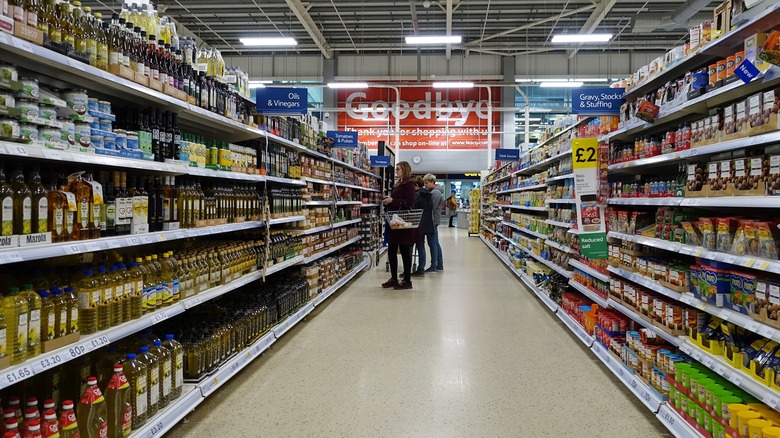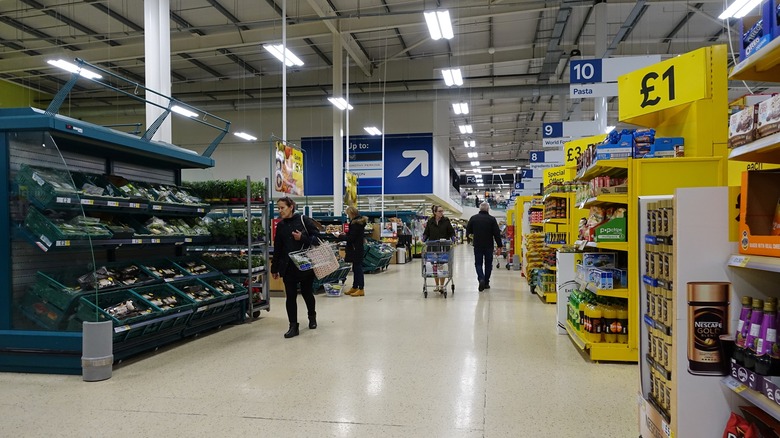Food Inflation In The UK Increased Dramatically In September
Food is interwoven into the cultural identity of every country around the world. What could be more "British" than fish and chips? Sadly, judging by recent economic trends, it looks like chippies might be taking a backseat to inflation for a little while.
In May, the Russia-Ukraine conflict's export ban on cooking oil and seafood put thousands of fish and chip shops across the U.K. in jeopardy, per CNN. Now, the fiscal trend of increasing food prices has taken resource scarcity and nausea-inducing price tags to an entirely new level. At the end of September, The New York Times reported that inflation in the Eurozone hit a record high of 10%. For comparison, in September, inflation in the U.S. was 8.2% – still uncomfortably high but down from the record 9.1% in June (via U.S. Inflation Calculator).
Last month, CNBC reported that Eurozone energy prices are up 40.8% from last year, and economists predict that the Eurozone isn't out of the dark yet. Seema Shah, the chief global strategist at Principal Global Investors, says the high inflation rates put the European Central Bank in a tough position as it attempts to contain "core inflation" (aka food and energy costs) without sending the Euro area into a recession. Whether the prospect of remedying this problem is hard or easy, the fact is that food inflation in the U.K. increased dramatically in September — and consumers are feeling the heat.
Staples hit hardest
Perhaps the most alarming aspect of breakneck inflation is that it's affecting staple goods the most. Earlier this week, the U.K.'s Office of National Statistics said that meat, bread, milk, and eggs led the pack for September price increases. According to AP News, U.K. food prices are currently skyrocketing at the fastest rate in 42 years, with a whopping 14.6% price growth through September.
Last month, core inflation hit 10.1%. Transportation costs saw a 10.9% increase, and housing costs went up by 9.3%. U.K. Treasury Chief Jeremy Hunt forecasts that the trend will continue through the winter, and says folks should cut back spending wherever possible. But, consumers nationwide are already cutting back spending in crucial areas. Glenn Sanderson, head teacher at a school in Sunderland, says many parents are having to choose between sending their children to school and paying for their school lunches.
In April, U.K. pasta prices saw an alarming price hike. According to the BBC, the price of pasta across the country shot up by a whole 50%. At the time, a Tesco spokesperson told the news outlet that Tesco was "more committed than ever to providing our customers with great value" in light of growing inflation. Tesco even expanded its value lines and price-matched competitors to keep costs low.
However, in the time since that announcement, food costs have continued to skyrocket, leading Tesco to announce this week that it is raising the price of its iconic Meal Deal. For the past decade, Clubcard holders have been able to grab a sandwich, snack, and drink combo for €3. Now, it's €3.40 (via BBC).

